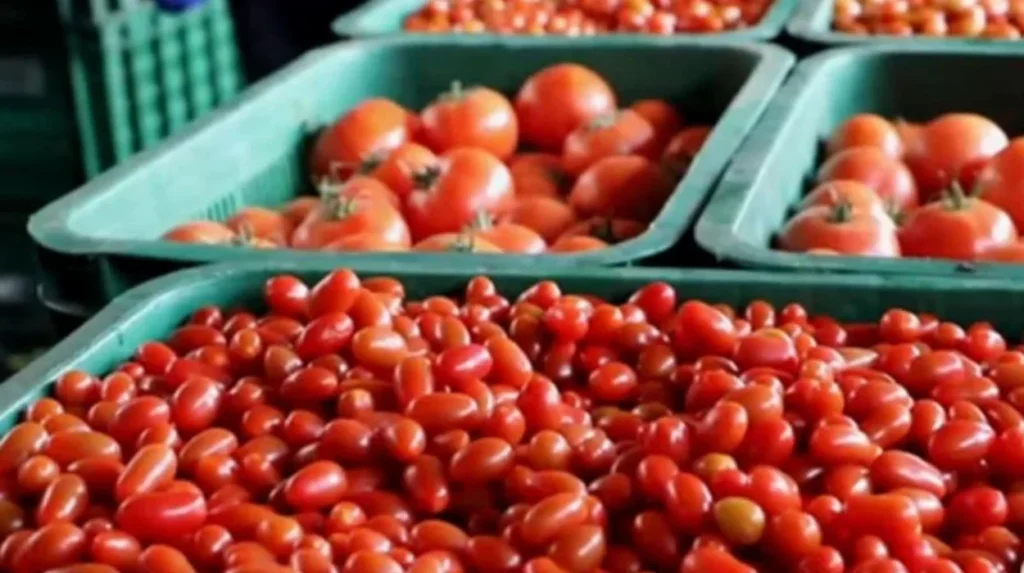The European Union faces escalating tensions over imports of Moroccan tomatoes as French and Spanish agricultural lobbies intensify their campaign to restrict Moroccan cherry tomato imports. This pressure comes amid legal, political, and trade uncertainties following a landmark ruling by the European Court of Justice (ECJ) that annulled EU-Morocco agriculture and fisheries agreements, triggering significant concerns among European producers.
The Legal Ruling and Its Ramifications
On October 4, 2024, the European Court of Justice struck down the EU’s agricultural and fisheries agreements with Morocco, citing the lack of consent from populations in Western Sahara for these deals. This ruling has complicated trade relations, as products from Western Sahara—including crucial agricultural goods such as tomatoes—are now excluded from EU-Morocco agreements.
Despite the annulment, the agreements were temporarily extended for 12 months to prevent immediate disruptions, a grace period set to expire on October 4, 2025. French and Spanish producers are using this looming deadline to press EU institutions for stricter trade rules and limitations on Moroccan tomato imports, aiming to curb competition perceived as unfair.
The Lobby Campaign: Coordination and Pressure
French and Spanish agricultural producers, alarmed by the surge of Moroccan cherry tomatoes sold at nearly half the price of local varieties, have intensified lobbying efforts within Brussels. French lobbyist Philippe Hériard, head of the Droit Devant agency, spearheaded meetings earlier this year with far-right French MEP Gilles Pennelle and members of the association Tomates et Concombres de France to strategize on limiting Moroccan tomato imports.
In Brussels, Pierre Bascou, Deputy Director of Agriculture and Rural Development at the European Commission, has held discussions with Spain’s influential agricultural union Coag. These talks reflect a coordinated effort to align positions around the theme of unfair competition that Moroccan imports represent to domestic European producers.
French agricultural parliamentarians have also increased pressure on Agriculture Minister Annie Genevard to adopt protective measures for local growers. French producers demand policies that would shield them from the lower-priced Moroccan tomatoes that currently dominate the market.
Trade and Economic Stakes
Morocco has seen significant growth in its tomato production, increasing output by over 17 percent from 2014 to 2023. This expansion bolsters Morocco’s position as a leading EU tomato supplier, with exports to Europe nearing €1 billion in value. France itself remains the largest European importer of Moroccan tomatoes, absorbing substantial volumes some of which are then re-exported within the EU.
Spanish producers have expressed particular concern about Moroccan exports exceeding originally agreed tariff quotas, urging investigations and clearer labeling for tomatoes from Western Sahara. Spanish MEP Carmen Crespo called for reviews of the trade agreement, accusing Moroccan exporters of exceeding duty-free limits and causing financial losses to European farmers.
The European Commission has reiterated that Moroccan tomato imports comply with the existing Association Agreement provisions, stating that imports beyond the tariff-free quota are subject to customs duties and thus legal. Commissioner Christophe Hansen noted,
“Out-of-quota imports are subject to customs duties and therefore comply with the agreement between Morocco and the EU,”
dismissing allegations of tax evasion.
From 2019 to 2024, customs authorities collected approximately €81 million in duties from these imports, reflecting the application of tariffs on volumes exceeding quotas.
Ongoing Negotiations and Future Trade Frameworks
Despite the heightened tensions, bilateral negotiations continue between French and Moroccan agricultural associations, including FranceAgriMer and Interfel. These talks aim to establish harvest coordination agreements to mitigate direct competition and stabilize market dynamics.
A prospective framework agreement targeted for implementation in 2026 seeks to regulate cherry tomato imports by coordinating harvest seasons between French and Moroccan producers. However, this initiative remains in limbo due to political calculations in Brussels and growing lobbying pressure.
The looming October 4, 2025 deadline for the grace period’s end has amplified the stakes. European agricultural stakeholders hope that non-renewal of the EU-Morocco trade agreement on agriculture will create safeguards protecting domestic markets from Moroccan competition.
Broader Political and Legal Implications
Moroccan tomatoes have become a flashpoint in broader EU-Morocco relations, intertwined with the geopolitics of Western Sahara. The ECJ ruling requiring that tomatoes and melons harvested in Western Sahara be explicitly labeled as originating from there further complicates labeling and import regulations.
This legal and political scrutiny has galvanized a “general mobilization” among European producers against what they perceive as unfair competition. Spanish agricultural organizations have also submitted formal complaints regarding labeling compliance, underscoring the multifaceted challenges faced by Moroccan exporters.
As EU ambassadors prepare to review drafts for revised agreements with Morocco, the dispute highlights the difficulty of balancing trade, political sensitivities, and the interests of EU farmers.
Economic Impact on Moroccan and European Agriculture
Morocco’s agricultural exports to the EU are vital for its economy, providing significant income and employment opportunities. The country’s strategic expansion into tomato farming has leveraged its geographic advantage and production capacity to capture European market shares.
On the European side, producers see Moroccan imports as a serious threat to their businesses, particularly for cherry tomatoes sold at much lower prices undercutting local varieties. French agricultural unions decry the situation as creating uneven playing fields and risking consumer misconceptions due to labeling and origin controversies.
French farmers have urged the government to implement protective measures, fearing further market erosion. On the other hand, French and Moroccan producers continue dialogue to find practical solutions, trying to balance economic interests with ongoing political disputes.
Looking Ahead: The Future of EU-Morocco Agricultural Trade
The next few months are critical for EU-Morocco trade relations. With the grace period for the annulled agreements expiring on October 4, 2025, the EU faces complex choices. Whether to renew, revise, or end agreements will have far-reaching effects on agricultural trade, producer livelihoods, and political relations regarding the Western Sahara issue.
Commissioner Hansen reaffirmed the EU’s stance that trade must respect legal rulings and agreements while protecting domestic markets:
“Member states must ensure fair competition and compliance with EU laws and agreements to safeguard both producers and consumers.”
The French and Spanish lobbying efforts reflect growing strategic assertiveness within the EU to protect local agriculture. Yet, with Morocco remaining a substantial supplier and key partner, trade negotiations will require careful balancing of economic, legal, and diplomatic factors going forward.







